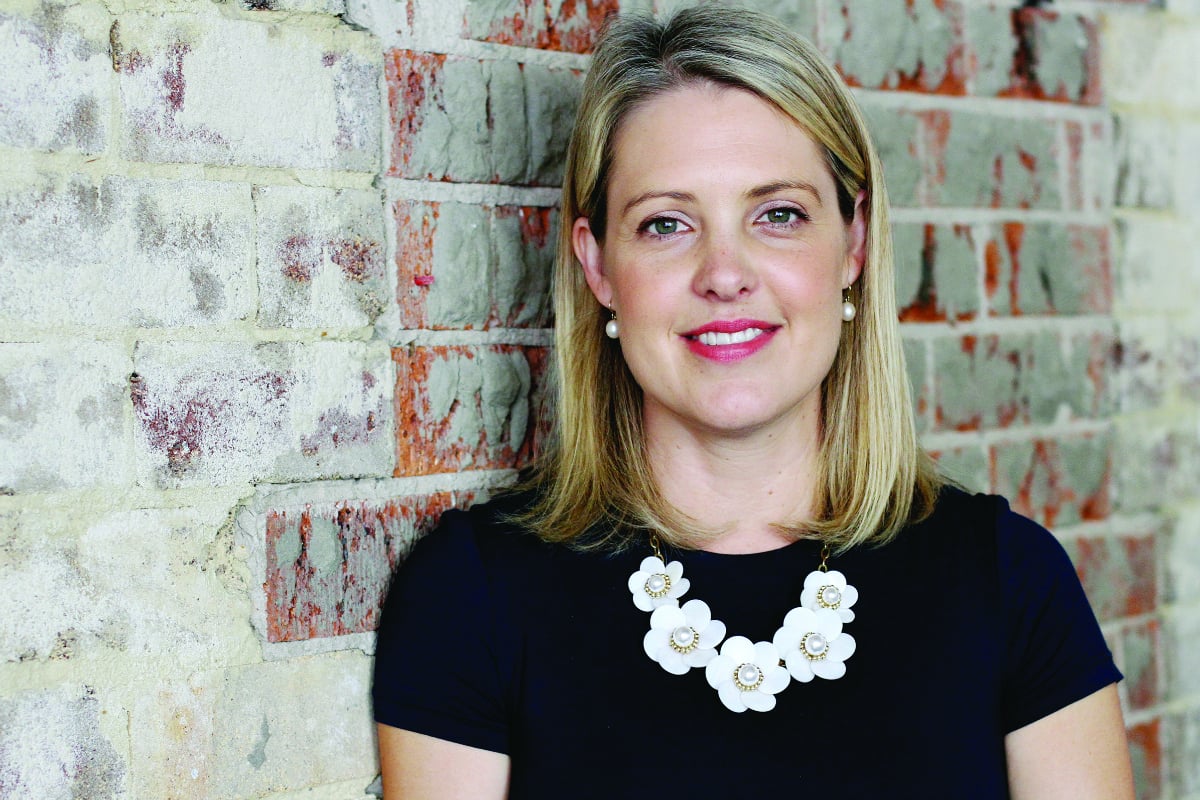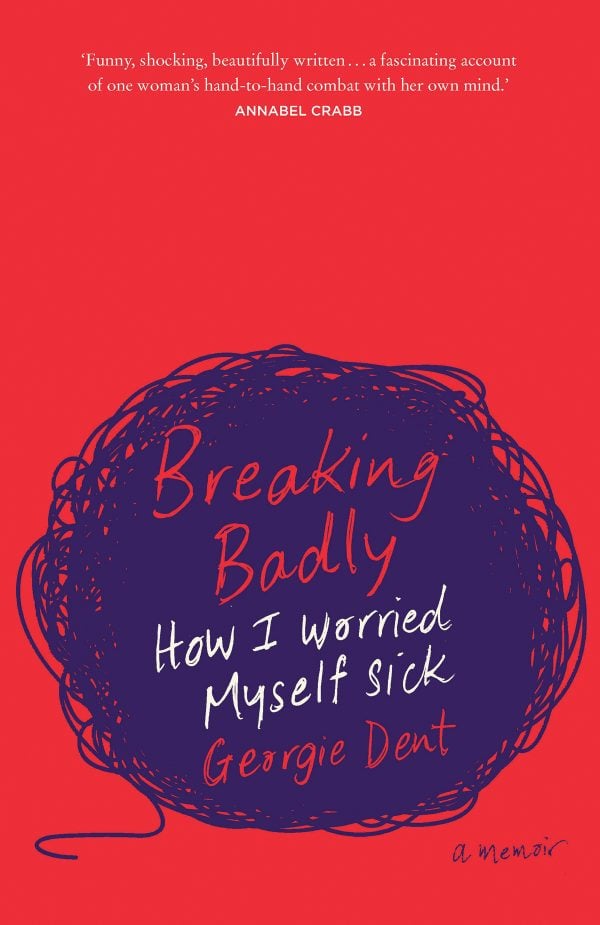
At 24, Georgie Dent had the world at her feet – but within a year she found herself in the midst of a nervous breakdown, suffering such crippling anxiety that she admitted herself to a psychiatric hospital. In her new book BREAKING BADLY Georgie shares how it all fell apart, and how she rebuilt her life.
If you wanted to make your life better what is the one thing you’d change?
Eliminate fear.
I was sitting up on my bed in hospital, using a meal tray as my desk, staring at those two little words. The question about making my life better had been posed at the end of a group therapy session earlier, and my answer, underlined in my notebook in lead pencil, shocked me.
I was scared all the time.
What was I so afraid of? Failing? Being disliked? Being seen as inadequate or incompetent? Did these things even matter? Why was I holding myself hostage to fear?
My whole life, I had been holding myself to impossible standards. I didn’t know there was a name for that paradigm at the time, but enlightenment came in a workshop on perfectionism run by Victoria, a psychologist who ran group therapy sessions.
‘We are going to explore perfectionism today, and before we begin I want to get a sense from you about how it might be impacting each of you,’ she said. ‘Put your hand up if you have ever felt like nothing you do is good enough.’
I practically snorted, inadvertently, as I shot up my hand. Several other hands went up too.


Top Comments
I could have written this. I was the same. Perfectionist. High achiever. Goal kicker. I had to be the best at everything. In a room I had to be the best looking, the smartest, the most successful, the wealthiest. It all came crashing down for me at age 32 when despite being a highly qualified, highly successful medical professional...I wasn’t able to keep my newborn baby healthy. He was consistently sick and in and out of hospital and I sunk into deep depression and anxiety. I now strive to be imperfect.
This could be an article about my life! It's just exhausting being constantly terrified of life. I might need to read this book.